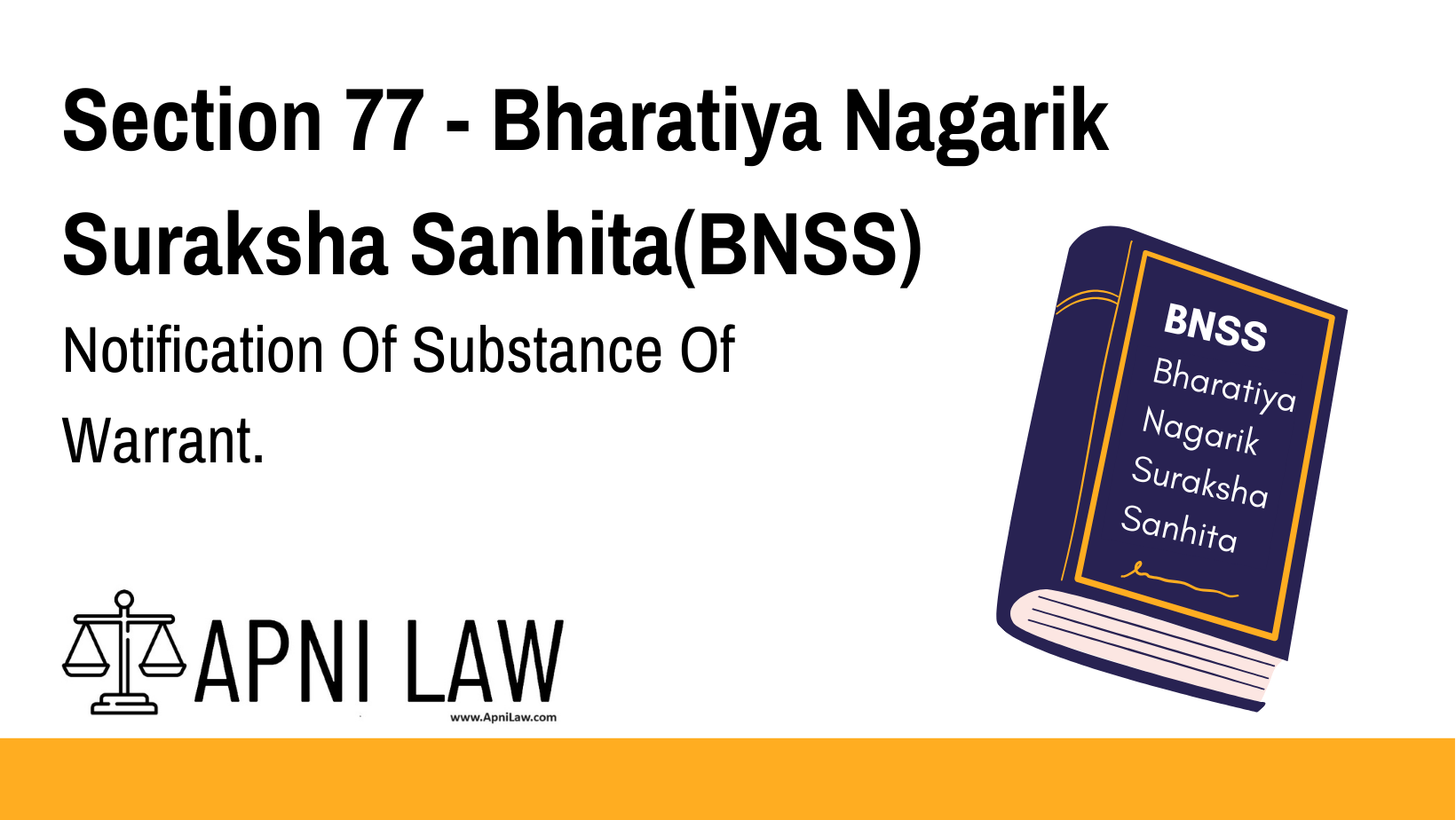Code: Section 77 BNSS
The police officer or other person executing a warrant of arrest shall notify the
substance thereof to the person to be arrested, and, if so required, shall show him the
warrant.
Explanation of Section 77 BNSS
Section 77 of the Bharatiya Nagarik Suraksha Sanhita (BNSS), 2023, mandates that before executing an arrest warrant, the police officer or any authorized individual must inform the accused about the warrant. This provision ensures transparency and protects the rights of the arrested person.
Key Aspects of Section 77 BNSS
- Notification of Warrant – The officer must inform the arrested person about the reason for their arrest.
- Showing the Warrant on Request – If the arrested person asks to see the warrant, the officer must show it.
- Prevention of Arbitrary Arrests – Ensures that no person is arrested unlawfully without being informed of the charges.
- Legal Compliance – This section aligns with constitutional protections against unlawful detention and the right to information of an accused person.
Illustration of Section 77 BNSS
Example 1: Proper Execution of a Warrant
A police officer arrives at Rahul’s residence with an arrest warrant issued by a Court.
- The officer informs Rahul that he is being arrested for fraud.
- Rahul requests to see the warrant, and the officer shows it to him before executing the arrest.
Example 2: Violation of Section 77 BNSS
The police arrest Neha without informing her of the charges and refuse to show the warrant when asked.
- This is a violation of Section 77 BNSS.
- Neha may challenge the arrest as illegal before a Court.
Common Questions and Answers on Section 77 BNSS
1. Is it mandatory for the police to show the warrant before arrest?
✅ The police must inform the accused of the warrant’s contents. If the accused asks to see it, the officer must show the warrant.
2. What if the police arrest someone without notifying them of the warrant?
❌ If the police fail to notify the person about the warrant or refuse to show it upon request, the arrest may be challenged in Court as illegal.
3. Does this rule apply to private persons executing an arrest warrant?
✅ Yes, if a private person is authorized to execute an arrest warrant, they must also inform the accused and show the warrant upon request.
4. What legal recourse does a person have if this provision is violated?
✅ The arrested person can:
- File a complaint against the arresting officer.
- Challenge the arrest in Court.
- Seek bail or legal remedy if their rights are violated.
Conclusion
Section 77 BNSS ensures that every arrested person is properly informed about the reason for their arrest and given access to the warrant if requested. This provision protects individuals from unlawful arrests and ensures compliance with legal procedures.
For more legal insights, visit ApniLaw today! 🚀








